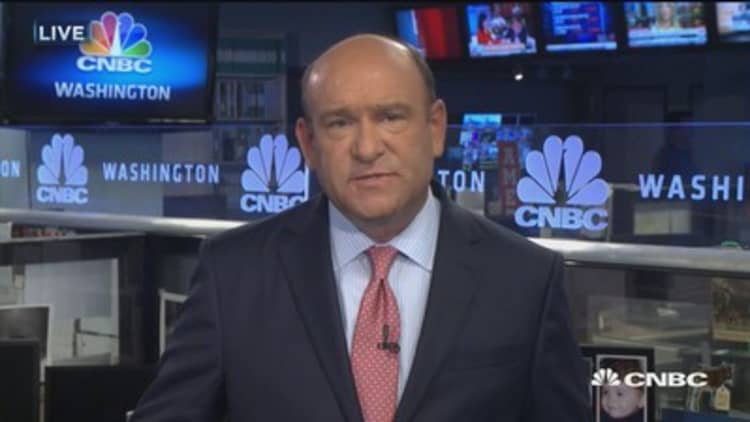
The Federal Reserve, long hesitant to raise U.S. interest rates, increasingly faces risks if it waits too much longer so a gradual policy tightening is likely appropriate, a top Fed official said on Friday.
In another sign that a U.S. rate hike is approaching, Boston Fed President Eric Rosengren said "risks to the forecast are becoming increasingly two-sided." That means that while a slowdown overseas remains a concern, the U.S. economy has proven resilient and could even overheat if Fed policy remains unchanged for too much longer, he said.
Rosengren, an historically dovish Fed policymaker who has become more confident about hiking rates this year, cited Britain's vote to leave the European Union as an example of U.S. resistance to shocks from abroad. "There are also longer-term risks from significantly overshooting the U.S. economy's growth," he said.
"If we want to ensure that we remain at full employment, gradual tightening is likely to be appropriate," said Rosengren, a voter on the Fed's policy committee this year.
"A reasonable case can be made for continuing to pursue a gradual normalization of monetary policy," he added in prepared remarks to the South Shore Chamber of Commerce in Quincy, Massachusetts.
The Fed lifted rates from near zero last December — the first rate hike in nearly a decade — but has since stood pat given an economic slump at home and volatile markets overseas. While investors and economists see a slight chance of a hike at a Fed policy meeting in two weeks, a move in December is seen as more likely.
Rosengren did not mention whether he expects a rate hike before year end, yet the message appeared to fall in line with that of Fed Chair Janet Yellen who said last month that the case was "strengthening" to raise rates.
The "modest" wage pressures so far this year mean the labor market is tightening and could well exceed "full employment" next year, Rosengren said. For the rest of this year, U.S. GDP growth will likely rebound and run above a 2-percent rate over the next two quarters, he added.

